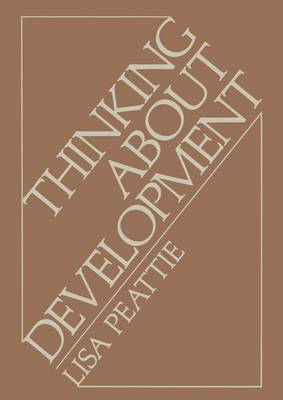Environment, Development and Public Policy: Cities and Development
2 total works
This book began as an exploration of collaborative work orga- nizations. We knew about people in various occupations who had gotten together to form organizations of equals to man- age the settings within which they did their work. Among these organizations were a teacher-controlled public school, a fishermen's cooperative, a potters' studio, a public-interest advocacy group, and an architectural firm. We wondered how these groups functioned, and whether and how they contributed to making work satisfying for the individuals in them. These groups were, of course, pretty small potatoes, but it seemed to us that they provided a way to an understanding of some much larger current issues. Worker satisfaction has surfaced as an issue of current concern and has been repre- sented in research documenting the growing expectations that the members of our society have of their work experi- ence. More workers are more educated now than ever before, and more and more people seem to look to work as a personal outlet, rather than just a source of income.
We saw our small, egalitarian work organizations as providing settings in which people were especially likely to v vi PREFACE find work satisfying. We wanted to know both the organiza- tional conditions for satisfying work and the conditions un- der which collaborative work organizations could keep func- tioning. Since the sociological literature on work satisfaction tends to revolve around issues of autonomy and control, we sought out settings in which workers had maximized autono- my and control.
We saw our small, egalitarian work organizations as providing settings in which people were especially likely to v vi PREFACE find work satisfying. We wanted to know both the organiza- tional conditions for satisfying work and the conditions un- der which collaborative work organizations could keep func- tioning. Since the sociological literature on work satisfaction tends to revolve around issues of autonomy and control, we sought out settings in which workers had maximized autono- my and control.
This book intends to be helpful to people-students and oth- ers-who are beginning to think about how to change the world via that activity we call development planning. The issues of What is Progress? and How do we get it? are world-wide, although they appear in different form in societies like our own from the way they do in the Third World countries with their explicit development planning. These are two very big questions and have no easy or final answers. However, we can think about them in more rather than less effective ways. Thinking about them can be both a way of beginning to take action on issues of growth and change, and a way of understanding our own situation. vii viii I PREFACE This book argues that thinking about development plan- ning has gotten into trouble by dividing economy from so- ciety, and misconstruing moral-social-political issues as tech- nical ones. Development planning has centered on economic planning, treating social issues as obstacles to growth, or as problems arising out of economic change.
The book takes up a number of specific topics which enter into development planning-topics such as the organization of work, educa- tional planning, family policy-to show how in reality the social and the economic, the moral and the technical, are one, and how thinking about policy in each area should therefore take an integrated perspective.
The book takes up a number of specific topics which enter into development planning-topics such as the organization of work, educa- tional planning, family policy-to show how in reality the social and the economic, the moral and the technical, are one, and how thinking about policy in each area should therefore take an integrated perspective.

